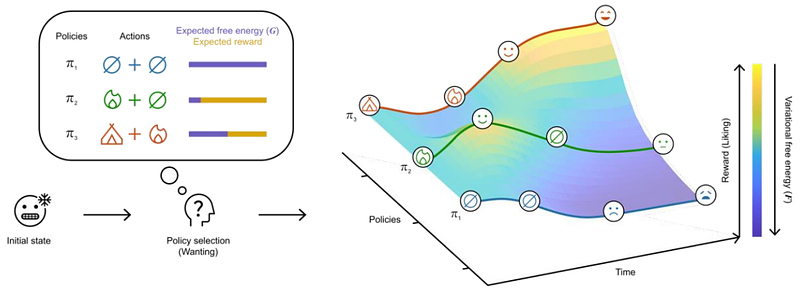Hedonic foraging: From reward to action

Hedonic foraging: From reward to action
Clemente, A.; Penacchio, O.
AbstractHedonic evaluation shapes behaviour across organisms. Yet, the mechanisms that transform hedonic values into motivated behaviour remain poorly understood, and key questions remain unanswered. How do habits, wanting, and liking or disliking interact to generate behaviour? Do common principles govern behaviour across species and cognitive systems, from basic survival mechanisms to complex cultural endeavours? We propose a unifying theory of motivated behaviour that integrates hedonic evaluation with active inference, a framework in which perception, action and cognition emerge from the imperative to minimise free energy. We argue that variational free energy provides a natural measure of liking and disliking, while expected free energy encodes wanting, the motivational drive toward rewarding outcomes. This synthesis, which we term hedonic foraging, offers a principled explanation for how organisms navigate their environments based on pleasure-driven learning and decision-making. It posits that motivated behaviour emerges from the fundamental pursuit of maximising reward, with hedonic evaluation motivating and monitoring actions through wanting and liking mechanisms. We demonstrate that hedonic foraging captures a wide range of behaviours, from allostatic processes common to all animals to sophisticated human activities such as art appreciation and cultural exploration. Crucially, our integrative perspective fosters mutual enrichment between hedonic evaluation and active inference, two fundamental approaches to behaviour. Ultimately, hedonic foraging reinforces the view that cognition is essentially about purposive engagement in adaptive interactions with the environment and its affordances and offers a unified framework for investigating cognition and behaviour.